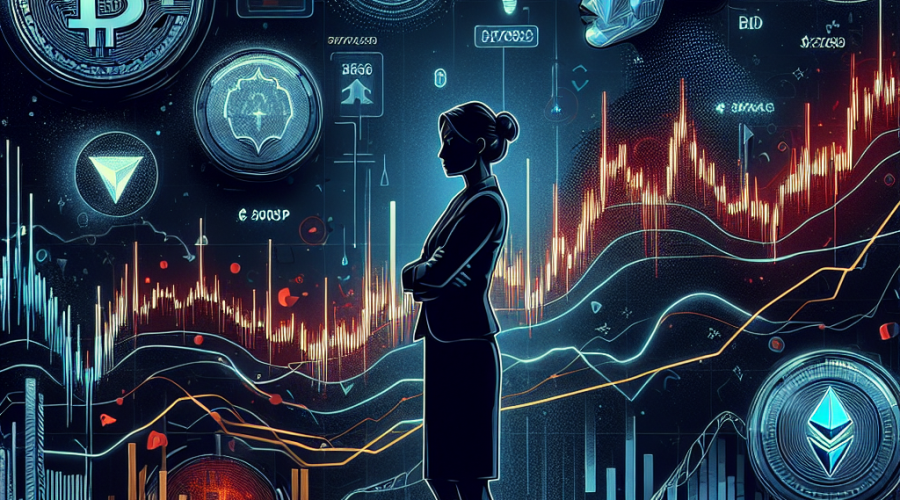In recent developments, Uniswap Labs, the organization behind the decentralized exchange Uniswap, has come under scrutiny for restricting access to its application for users in Ukraine. This move, ostensibly made to comply with international sanctions, has left many in the blockchain and decentralized finance (DeFi) communities questioning the foundations of openness, accessibility, and neutrality that platforms like Uniswap were built upon. As the situation continues to unfold, it poses significant questions about how global regulations intersect with the ideals of decentralized finance and the practical realities of technology providers implementing sanction policies.
Background: Uniswap and Its Commitment to Decentralization
Uniswap is renowned as one of the largest and most influential decentralized exchanges (DEXs) in the world, enabling users to swap cryptocurrencies directly from their wallets without needing to rely on centralized intermediaries. Established on the Ethereum blockchain, Uniswap pioneered the use of automated market makers (AMMs), streamlining the trading experience while reinforcing the ethos of decentralized finance—open, borderless, and censorship-resistant transactions.
Historically, figures connected to the Ethereum ecosystem, including the Ethereum Foundation, have posited that their technology should be robust enough to survive global crises, famously declaring back in 2018 that “eth2 should be capable of surviving World War 3.” However, recent access restrictions at the application layer challenge this vision and bring the ideals of crypto into conflict with regulatory and compliance realities.
Access Issues for Ukrainian Users
Multiple reports have emerged, both from within Ukraine and through independent verification using Virtual Private Networks (VPNs), that show Uniswap’s web front-end is currently blocking users based in Ukraine from executing trades. While users can load the main Uniswap site, any attempt to select assets or proceed with a swap results in error messages unique to Ukrainian IP addresses. This disparity does not occur for users accessing Uniswap from the United States or most other regions.
Artem Chystiakov, head of Solidity development at Distributed Lab and based in Ukraine, has been a vocal critic of Uniswap’s current blockade. Not only has he provided first-hand accounts of the issue, but he has also engaged with Uniswap’s support team directly. Through these communications, it has become evident that the restriction extends beyond just the Donetsk, Luhansk (LNR), and Crimea regions—areas which are explicitly outlined in sanctions—affecting the entire country.
The Regulatory Maze: Misinterpretation of Sanctions?
To understand the controversy, it’s important to look at what US sanctions actually prescribe. The US Office of Foreign Assets Control (OFAC) does not publish a specific list of entire countries prohibited from transacting with US companies; rather, it lists sanctioned regions, individuals, and companies. Regarding Ukraine, US sanctions are specifically targeted at the self-declared Donetsk and Luhansk People’s Republics (DNR and LNR) and the Crimea region, in response to geopolitical conflicts in these areas. Other regions and cities in Ukraine, such as Kyiv, are not subject to blanket US sanctions.
Chystiakov points out, “It is clearly stated that no goods, services or technology must be provided to both the so-called DNR/LNR and the Crimea regions of Ukraine. Kyiv and other Ukrainian cities/regions are not mentioned whatsoever.” Despite this, Uniswap appears to have implemented a blanket block on all Ukrainian IP addresses, citing compliance concerns. In his open letter to Uniswap Labs, Chystiakov described the situation as “absurd,” arguing that Ukrainians, in the midst of resisting aggression and fighting for freedom, are inappropriately denied access to what is supposed to be borderless technology.
User Workarounds and Community Backlash
The Ukrainian crypto community has not remained passive in the face of these restrictions. As users confront error messages and unavailable services, some have turned to aggregators—DeFi portals that can route trades across multiple exchanges—to circumvent the problem. Others are making use of VPNs to mask their geographical location, a workaround that is well-known in the crypto space for bypassing region-based blocks.
Notably, threads on community forums and social media platforms illustrate users’ frustration, with many joining a Change.org petition demanding that Uniswap restore access for Ukrainian citizens. The decentralization philosophy that underpins Uniswap has always resisted such barriers, and the backlash highlights the tension between compliance and inclusivity.
How Is Uniswap Implementing Geoblocking?
The technical means by which Uniswap Labs is enforcing these geographic blocks seems to involve third-party service providers such as Cloudflare, a prominent content delivery network (CDN) and web security provider. Analysis using public domain registration and lookup tools confirms Uniswap’s reliance on Cloudflare infrastructure.
Cloudflare does offer the option for “granular” geoblocking, where specific subnational regions (like Crimea, Donetsk, and Luhansk) can be blocked without affecting the broader country. However, this functionality is only available to users on Cloudflare’s premium plans (Pro, Business, or Enterprise). If Uniswap Labs is using a lower-tier Cloudflare service, the only option may be to block entire countries, which may explain—but not justify—the overly broad enforcement observed here.
Financial Implications and Questions of Policy
The reasons behind Uniswap’s decision to block entire countries, rather than targeted regions, are still murky. It could be a matter of convenience, cautious over-compliance, or a cost-saving measure (avoiding the higher fees of detailed regional filtering). What is clear, however, is that Uniswap Labs possesses the resources to address these nuances: data suggests they generated $118 million in revenue in 2024, dwarfing the Uniswap Foundation’s reported $1.11 million over the same period. Given these figures, the choice not to invest in a more refined geoblocking system raises questions about priorities and consistency with stated values.
Ironies and Inconsistencies: Past Support for Ukraine
The implications of Uniswap’s current Ukraine policy are especially ironic when considering prior actions. In 2022, Uniswap publicly launched a feature that facilitated crypto donations to the Ukrainian government, rallying its global user base to support the country’s war effort. As of now, that donation feature appears to have been removed from the UI, further highlighting shifting attitudes or priorities within Uniswap Labs.
The platform’s motto, “Swap anytime, anywhere,” now rings hollow for Ukrainian users. Far from embodying a borderless ethos, Uniswap’s practical approach currently enforces arbitrary digital borders, leaving many questioning the fundamental promises of decentralized finance platforms when they interact with traditional regulatory frameworks.
Community Reaction and the Road Ahead
The broader crypto community remains divided in its response. Some see Uniswap’s stance as a reasonable, if imperfect, alignment with international law—an unfortunate but necessary evil for navigating a global web of regulations. Others perceive it as a betrayal of core DeFi values, noting that technological solutions exist that would allow for targeted blocks rather than sweeping restrictions.
At stake is the larger question of whether DeFi applications can truly operate independently of geopolitical pressures, or whether centralized components (like web front-ends or infrastructure providers) inevitably undermine the lofty goals of decentralization. For now, on-chain access to Uniswap’s smart contracts—through direct interaction or alternative user interfaces—remains available, but for the average user, these options are technically complex and less accessible.
Calls for Accountability and Transparency
Chystiakov’s case and the Change.org petition demonstrate a palpable demand for greater transparency and responsiveness from Uniswap Labs. Advocates argue that maintaining an open dialog with users and providing clear justifications for actions that restrict access are essential for maintaining trust. Critics warn that failure to do so could set a troubling precedent for the DeFi sector, where external regulatory pressure results in widespread, unchecked censorship.
In a landscape defined by rapid change and tension between ideals and practicalities, the Uniswap-Ukraine situation is a clarion call for clearer policies, improved infrastructure, and a recommitment to the principles of openness that have always defined blockchain innovation. Whether Uniswap Labs will revisit its approach—and whether other DeFi platforms will face similar dilemmas—remains to be seen as regulation and technology continue their uneasy dance.


















